How are these fifteen talented UU’ers doing now?
The Promising Fifteen, five years later
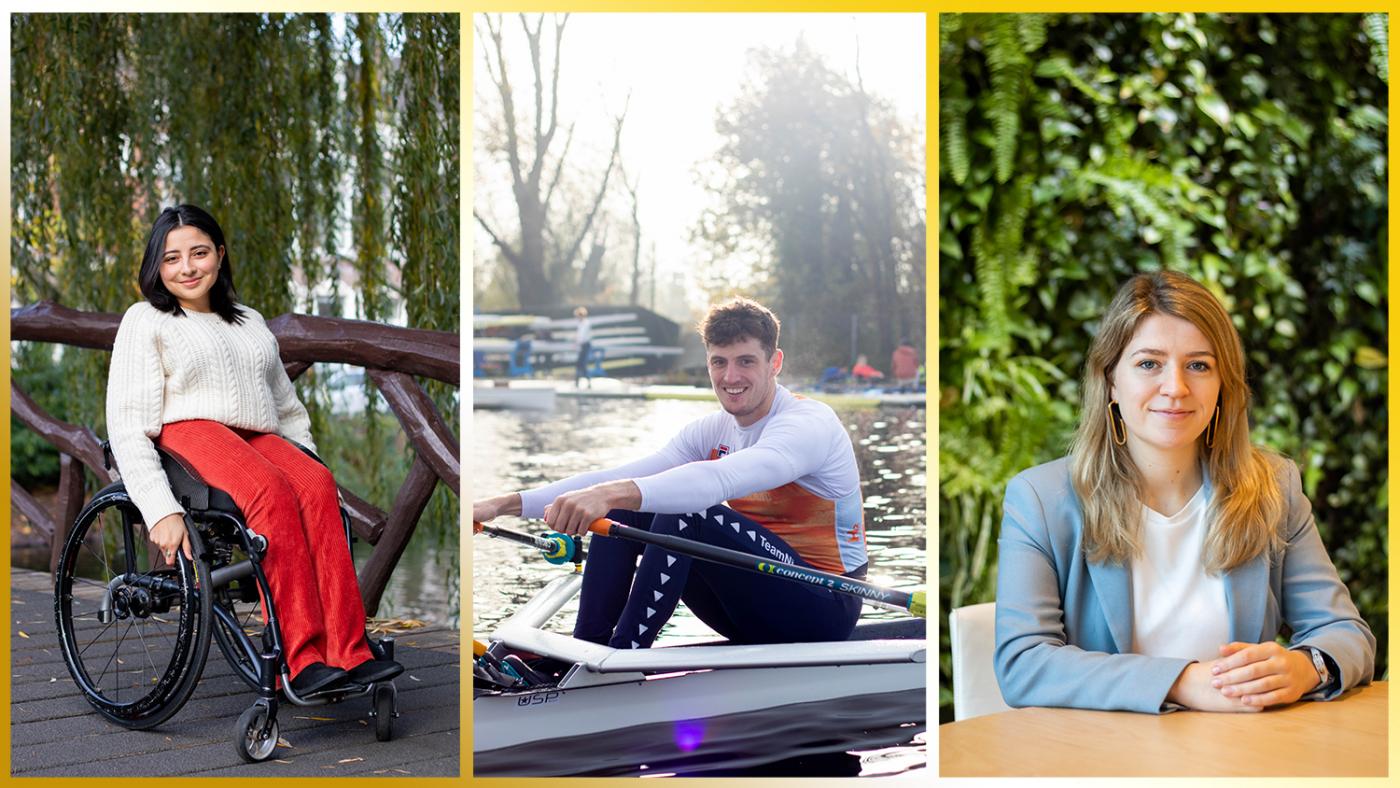
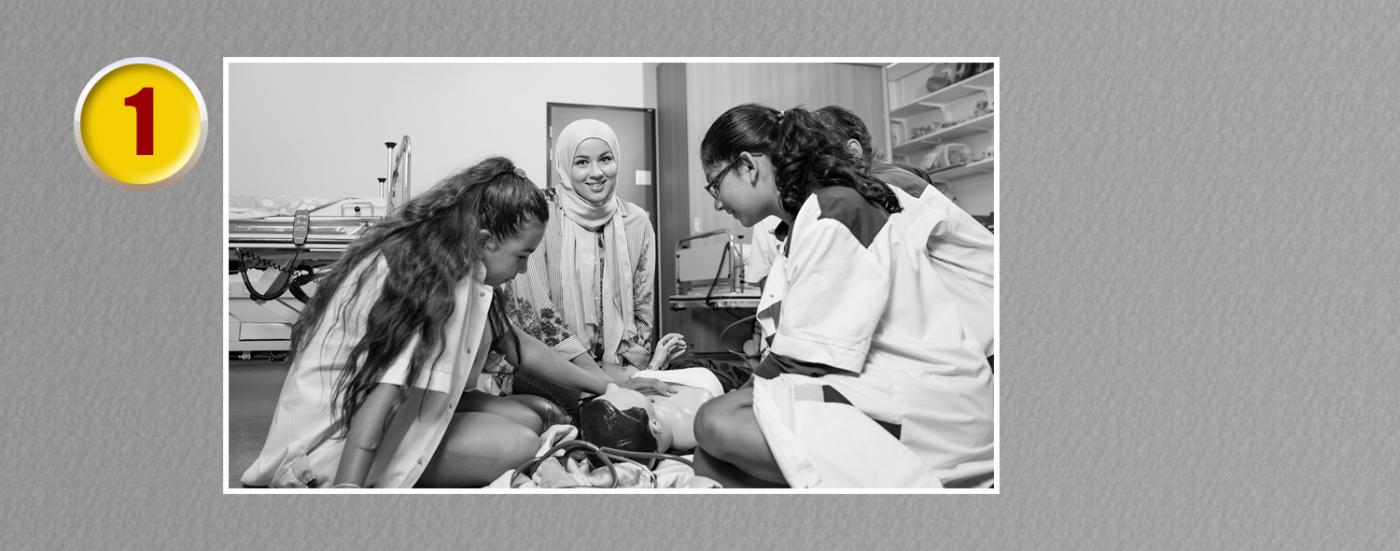
Maryam Lyousoufi has started in April this year as a hospital apothecary at the Hague Hospital Pharmacy. She is "extremely happy about that", she tells DUB. Not surprisingly, as she told us five years ago that this was her big ambition. At the time, she was involved in the IMC weekend school, where she gave supplementary lessons to children from "neighbourhoods where it is most needed". A year before, she won an Echo award. This award is given to successful students from non-western backgrounds who excel through their study results, ground-breaking attitude, leadership qualities and community involvement.
After finishing her Bachelor’s and Master’s Pharmacy at the UU, she completed the four-year specialisation Hospital Apothecary at the Leiden UMC and the HagaZiekenhuis. During this time, she found out that she is very interested in working in the laboratory. Nowadays, that is exactly what she is doing. So dreams come true, but maintaining a good work-life balance is a challenge. "Good time management and prioritisation are essential," she says.
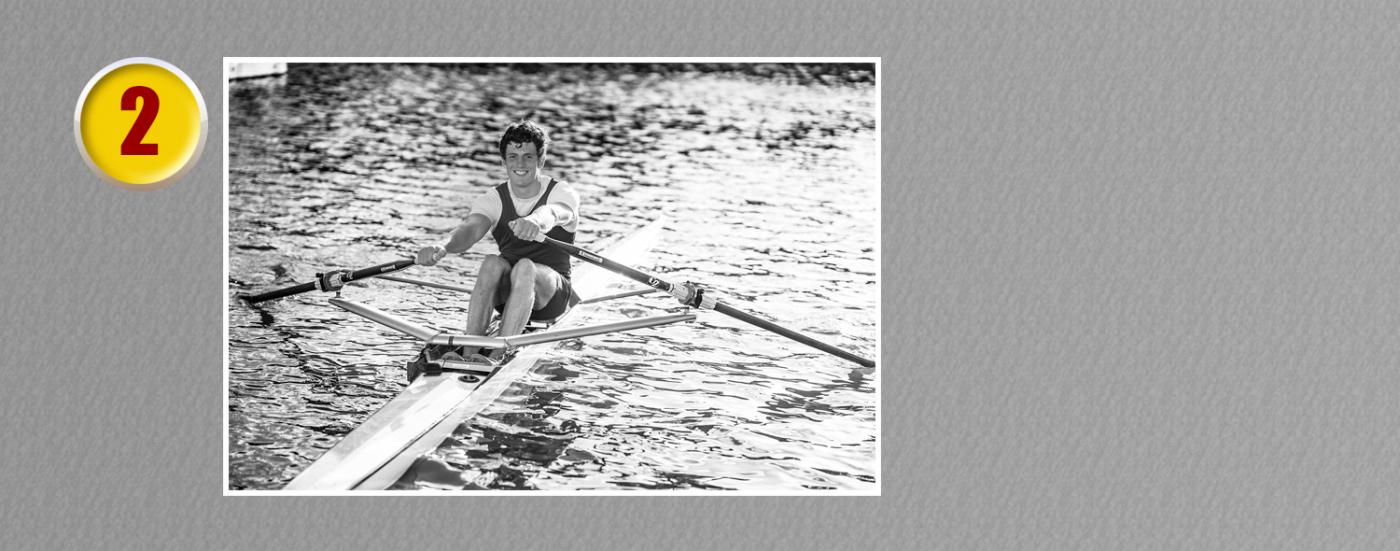
'Ordinary is also just ordinary'
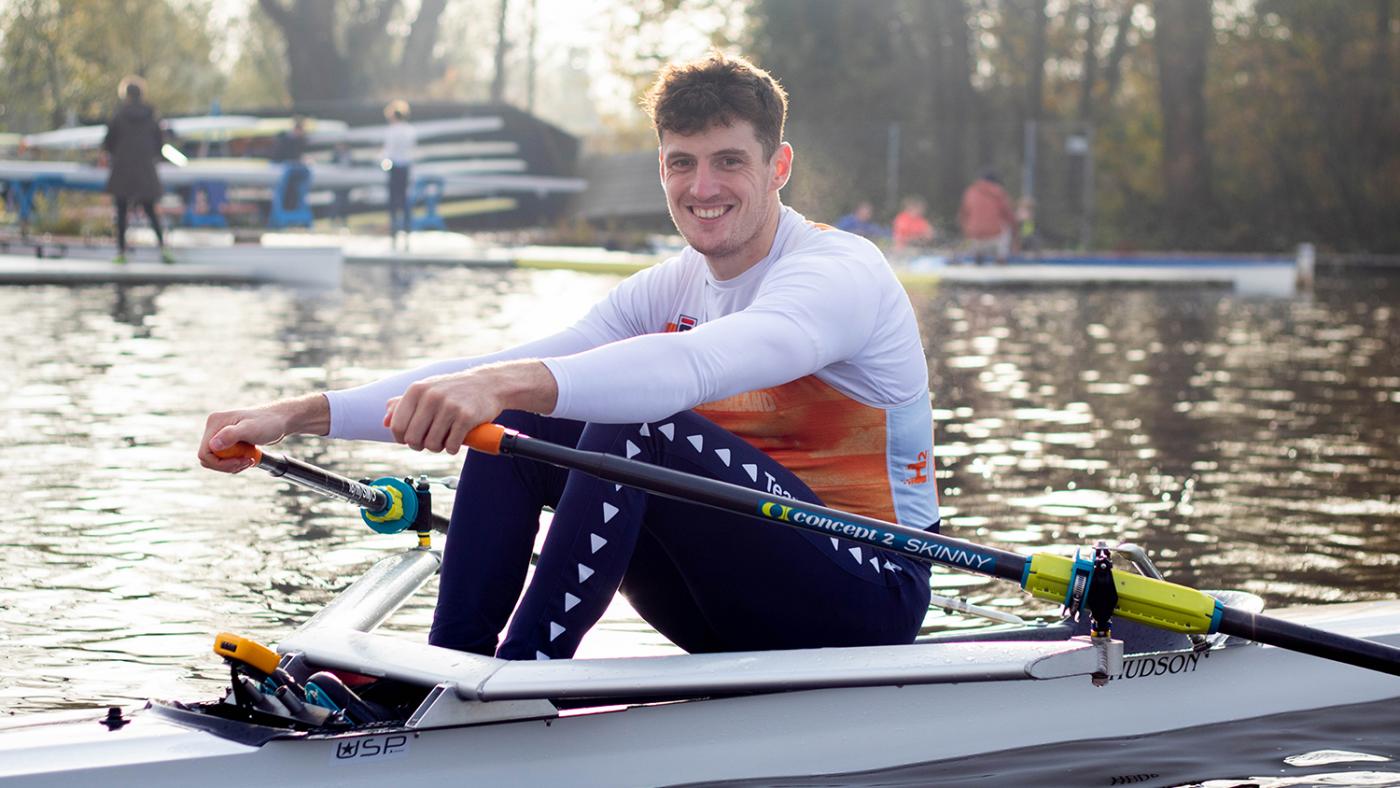
When DUB spoke with Jacob van de Kerkhof (27) in 2017, it already stood out that he didn’t lack any ambition. “Ordinary is also just ordinary”, was his most important motto. Those weren’t just words: at that moment he was a ‘big Utrecht talent’ in rowing and also a student at the selective Law College at Utrecht University. Everything showed that Jacob was bursting with the motivation to do (a lot) more than just the necessary.
That motivation seems inexhaustible: five years later, Jacob is still doing a lot more than the average Dutch person. That is even putting it mildly. First of all he has become a full time rower. In September he won silver at the World Championship with the Dutch Eight and he hopes to go for gold in 2024 during the Olympic Games in Paris.
However, his greatest pride is winning the Varsity, the greatest and oldest student sport event of the Netherlands, with U.S.R. Triton. It was the first time since 1967 that Triton won the rowing competition. “Sportingly speaking, it might have been a smaller achievement than silver at the World Championship. However, the whole city of Utrecht was on its feet. It meant so much for the association.
In the meanwhile, Jacob hasn’t stopped studying. Quite the contrary, after finishing Utrecht Law College, he did two more masters, one at the UU and one at the UvA. According to himself, he did it mainly “out of occupational therapy. It is nice to be doing something with your brain.”
The combination of top sport and studying sometimes creates unique situations. For example, he had to follow a lecture partly in a ski elevator during an altitude training. Because of covid he has never been to the UvA during his masters, but he did complete it cum laude. Currently, he is a part-time PhD candidate at the UU. The combination of studying and topsport is still working well for him: “After nine years of studying you quite know the trick. It is all about balance. After a quick sprint, you have to rest for a while.”
Of course, not everything had come naturally. On the sports front there had been a few selection procedures where Jacob didn’t pass. That is a blow for your self-esteem, especially when you have been training a whole year for it. “It was important for me to still be studying next to it. That allowed me to focus on something else”, he says.
He still enjoys rowing, which makes a difference. However, in five years his rowing career will probably have ended. He hopes by then, after he has won gold at the Olympic Games, to be realising his other ambition: becoming a lawyer.
The Jacob of five years ago would be pretty content with his current situation, the Jacob from now thinks. However, it can always be better. That’s also what he wants to pass on to first years students. “Because ordinary is just ordinary, I still believe that.”
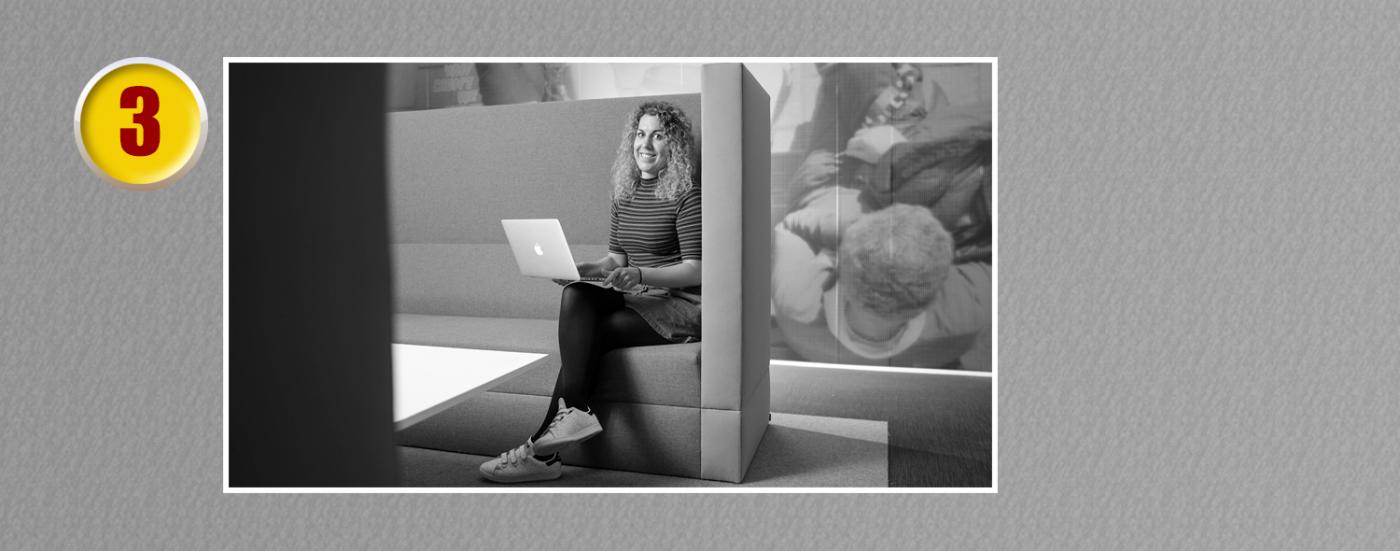
Five years ago, DUB described Eva Vriens as someone “predestined for research”. This wasn't out of the blue. At the time, Eva had graduated with a Research Master's cum laude and had been a student assistant on two research projects. It turns out we were right in our prediction.
After finishing her PhD, she moved to Rome, where she works as a postdoc researcher at the Institute for Cognitive Sciences and Technologies within the National Research Institute. For the past year, Eva has also been working as a part-time researcher for the Institute for Future Studies in Stockholm, studying problems in addressing collective security risks, such as climate change and the Covid-19 pandemic.
Eva still has the ambition to exert social impact with her research. She feels she has a duty "to disseminate the results" of her research not only in scientific journals as climate risks are a hot topic and climate models are becoming more and more precise. At the same time, we have to deal with the "social translation of such knowledge." According to Eva, by communicating with a broader audience in the right way, fewer people will think they are "on their own" when it comes to solving the climate problem.
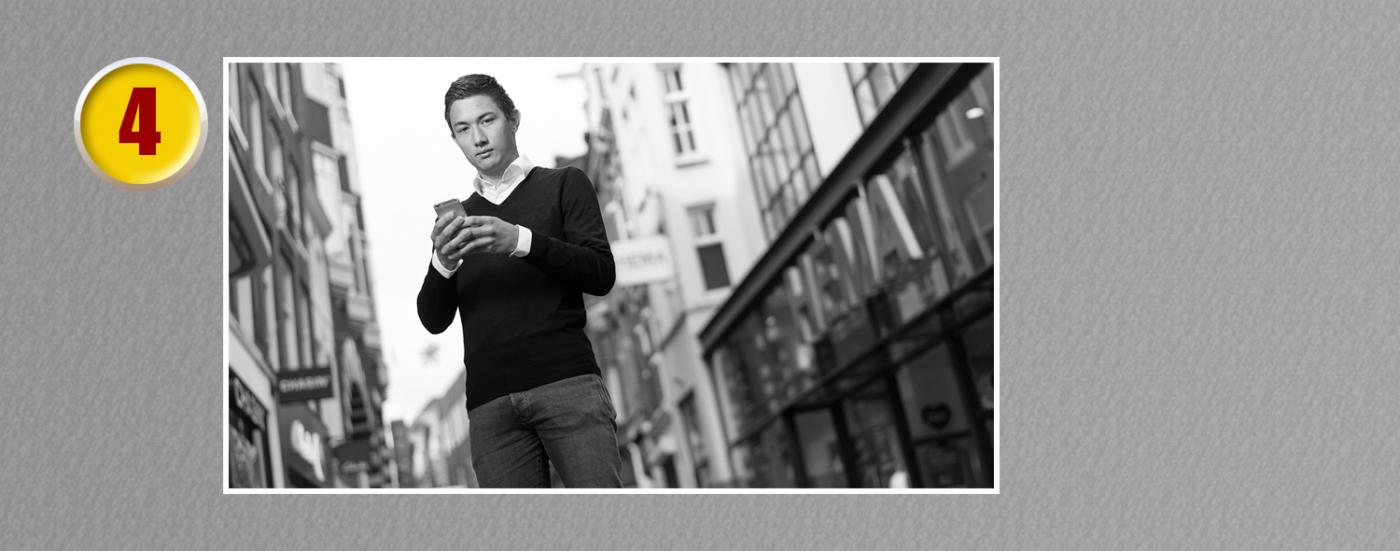
In 2017, Liam Tjoa’s company Gospooky was already being tipped as promising by business magazines such as Forbes and Sprout. Five years later we can conclude that these magazines were right.
Gospooky has grown into a company to be taken very seriously. Liam currently leads a team of more than 100 people. In May, Gospooky was named Agency of the Year by marketers' foundation SAN. The company began as a marketing agency with a focus on Snapchat. Today, Gospooky works with all major social media platforms. The company is now also making its mark internationally.
Because of the success of Gospooky, Liam never finished his study Information Studies. Of course, that success didn't come all by itself. According to Liam, it was especially difficult to find the right people. "The labour market is incredibly overstretched at the moment and good talent is very scarce," he says.
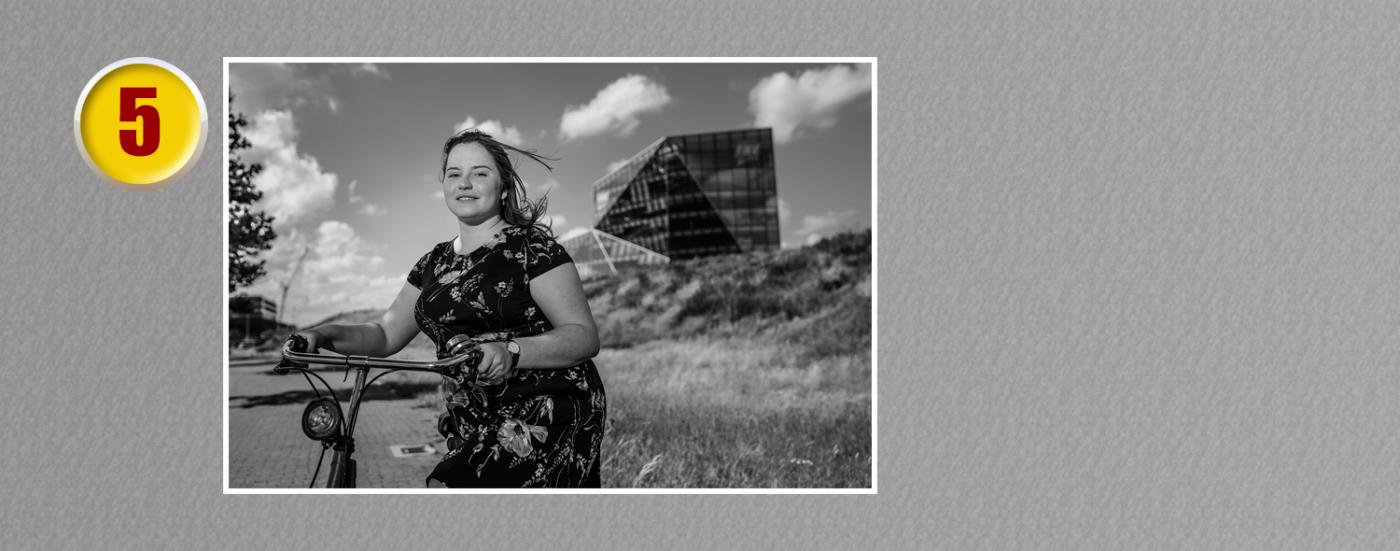
In her own words, Kristina van der Molen likes to fight for the interests of others, but sometimes forgets herself in the process. Between 2015 and 2017 she was the booster of a campaign by the youth representatives of labor union FNV against internship abuse (young people having to work full-time under the guise of an internship). After finishing her masters Organisations, Change and Management, that same activism guided her to positions like policy advisor of the Knowledge Centre Equal Opportunities, Diversity and Inclusion of the MBO Council.
Meanwhile, Kristina is senior advisor Concern Management at the Ministry of Health, Welfare and Sport. Having previously worked mainly in education, this is actually outside her 'comfort zone', she says. Fortunately, she likes it very much. She also gets a lot of satisfaction from her voluntary work. In 2021, she and her neighbour started an initiative in Kanaleneiland, where she now cleans the neighbourhood every month together with neighbours, children and community organisations.
She is careful not to forget herself in the process, she says. After a period of chronically high blood pressure, she fortunately now knows her limits a lot better. That is why she would like to give young people the following advice: "Take care of yourself, especially if you are someone who thrives on tension, pressure and likes to be busy all the time."
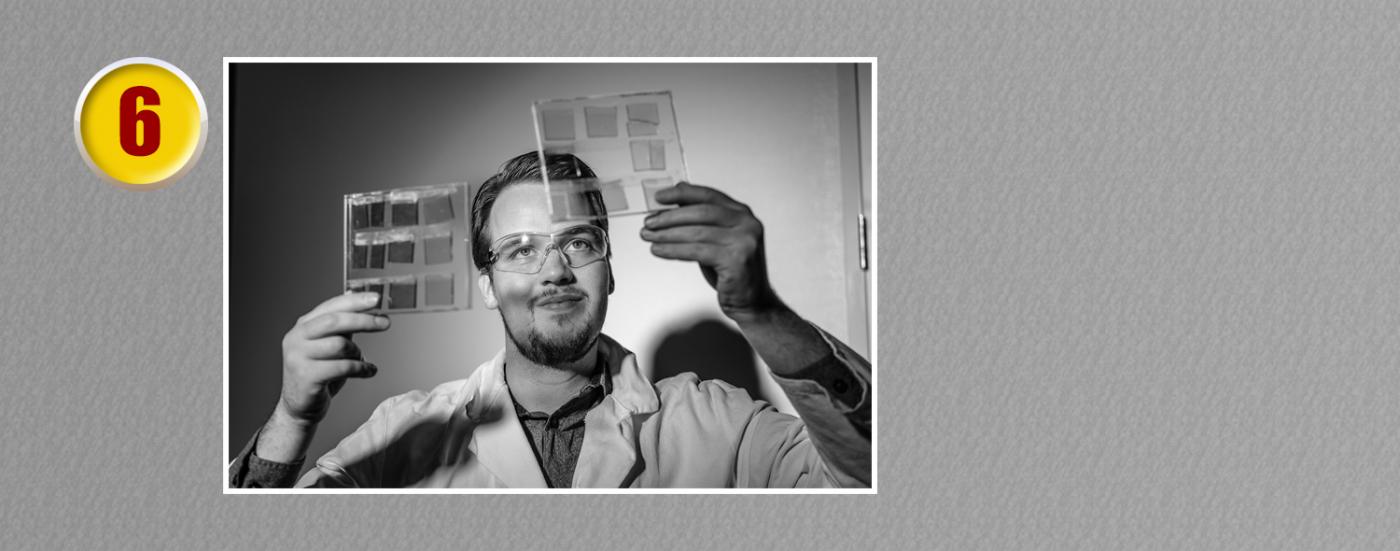
In 2017, Jochem Wijten already was a successful researcher. For example, in 2016, he won the Unilever Research Price for his master’s thesis on more efficient storage of solar energy. After obtaining his PhD he worked for a while as supporter at a lab with the department Inorganic Chemistry and Catalysis. There, he eventually got the urge for a new challenge. Additionally he was struggling with the question what he actually really wanted, he says.
He has found that new challenge recently in his position as researcher environmental safety at the RIVM (Dutch Institute for Public Health and Environment). Five years ago he told us that it was his ambition to contribute to the energy transition with his research. He is still researching that, but from a different angle. For example, he studies safety considerations around wind turbines. His ambition is still the same, but broader: he now also likes to see a safe Netherlands. In addition, Jochem says he continues to work on answering that important personal question: what does he want?
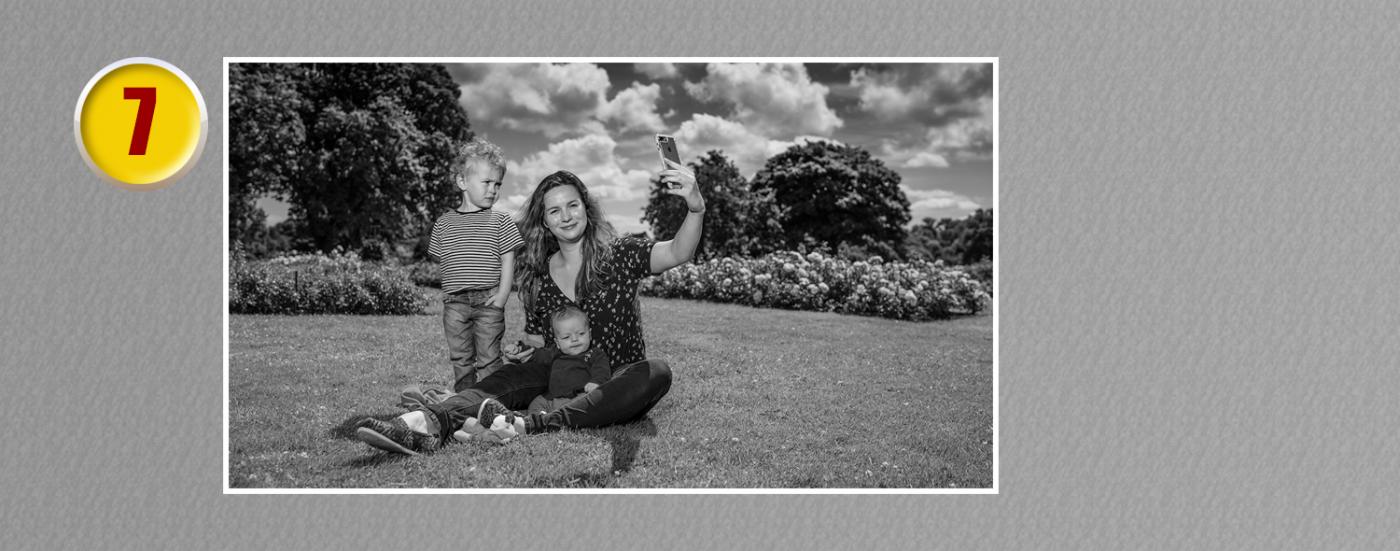
In 2016, Laura Cromzigt won the jury and audience award at the Students Research Conference for her undergraduate thesis on the self-responsibility of systems using artificial intelligence. Fairly shortly after her previous interview with DUB, she started working. She is now a policy officer at the Ministry of Economic Affairs and Climate, at the Digital Economy Directorate.
Five years ago, she said she hoped "to be in a position where she can do research freely". She succeeded: at the ministry, she is given plenty of space to ask questions and find answers herself. She wants to maintain that curiosity, doing research "in conversation with science and in a way that I can contribute to our society".
The fact that she is also a single mother of three sons can sometimes be quite an obstacle. "But obstacles are opportunities to grow. My sons have taught me many valuable lessons, which I also use during my career."
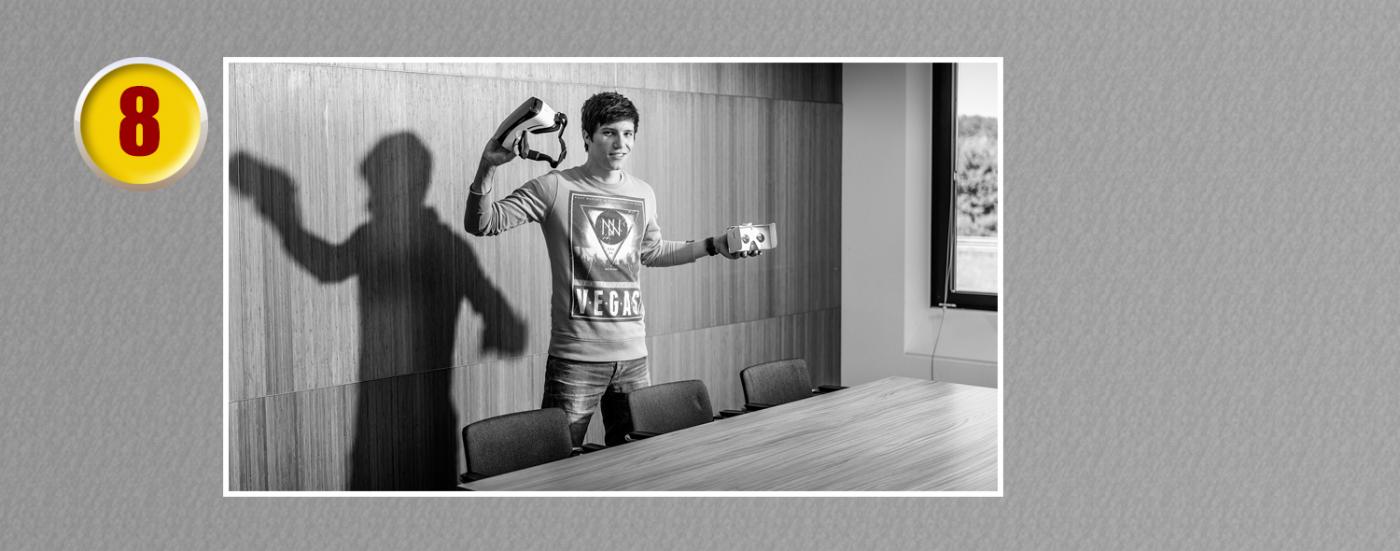
A lot has changed for Laurens van Roomen since 2017. At the time, he and fellow student Nick Hole were still busy with their startup, VR-House, specialising in virtual reality. Laurens said he had ambitions to grow with the company.
That went a little different. Due to the corona crisis, events stopped happening, while many of VR-House's customers depended on them. Moreover, the virtual reality market was not growing as fast as expected. The focus shifted to a software product they had already developed. But last summer, the whole VR-House story came to an end. That ending was positive, though: they sold their product to a US party. All in all, it was "a beautiful and instructive adventure with a nice ending," says Laurens.
He now works as a CSE (customer success engineer) at Commercetools. That does not mean he is done with entrepreneurship. He has recently taken several web development courses and will soon launch Greendeed, a platform where jobseekers can find sustainable jobs. In doing so, he hopes to "build an online business that is profitable while making a positive impact on the world".
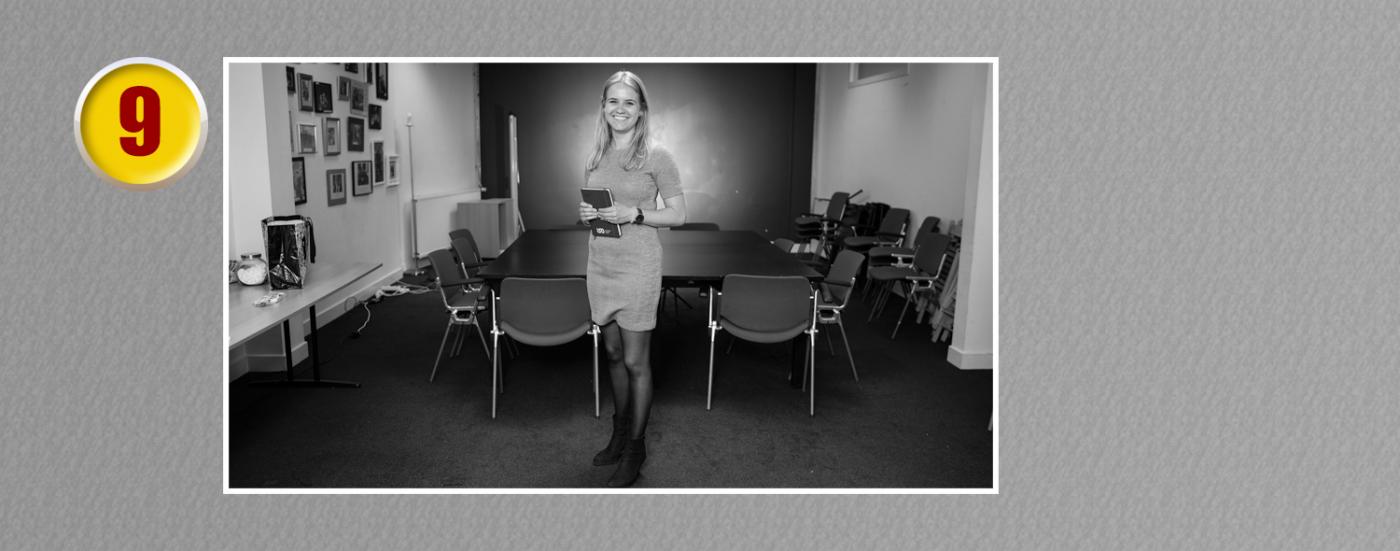
Unfortunately we were unable to reach Rhea van der Dong. Five years ago she told us that the mainly had the ambition to improve education. At the time she was doing so from her role as chair of the national student organisation Interstedelijk Studenten Overleg (ISO).
Nowadays, Rhea works, according to her LinkedIn page, as a Project leader Academic Teachers at the Interuniversity Committee Teacher Education (ICL).
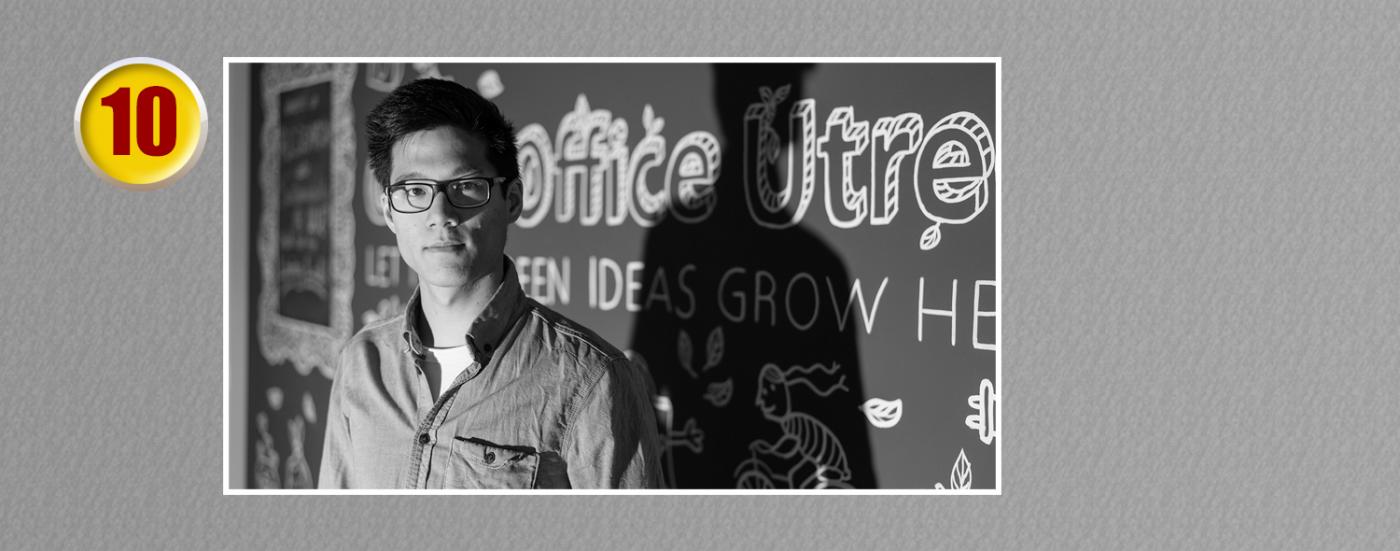
Five years ago, Nick Bijlsma was in the Sustainable Young 100, a list of students committed to sustainability. He is still committed to this today. After completing his master's degree in Sustainable Development and an internship in New York, he started working as a heat transition advisor at Bureau Over Morgen. There, he focuses mainly on making homes more sustainable and natural gas-free.
Nick’s choice for Over Morgen was not an easy one. When he had to decide where to start his career, he was shocked by the amount of options. “The programme or the university doesn’t really prepare you for that.” Fortunately, he is well placed. From his position, he can contribute to his great ambition: progress in sustainability.
Nick is also socially involved: he is a board member of Stichting Adoptiepedia, an advocacy organisation for Dutch-speaking adoptees from Taiwan and China.
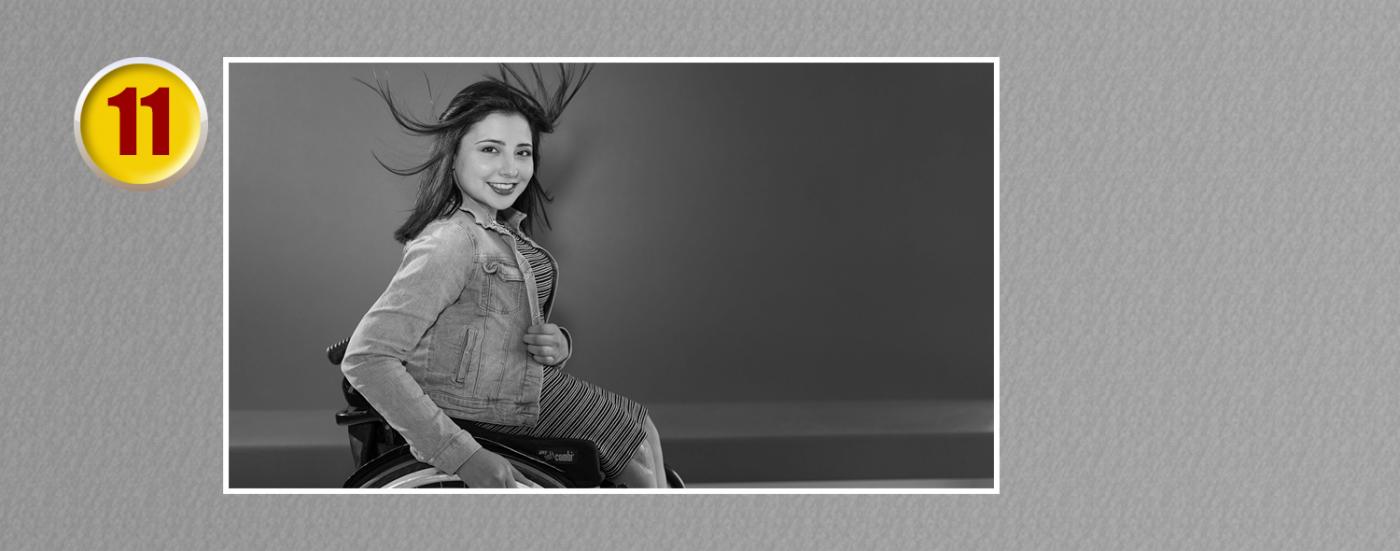
'Keep doing things that you find scary'
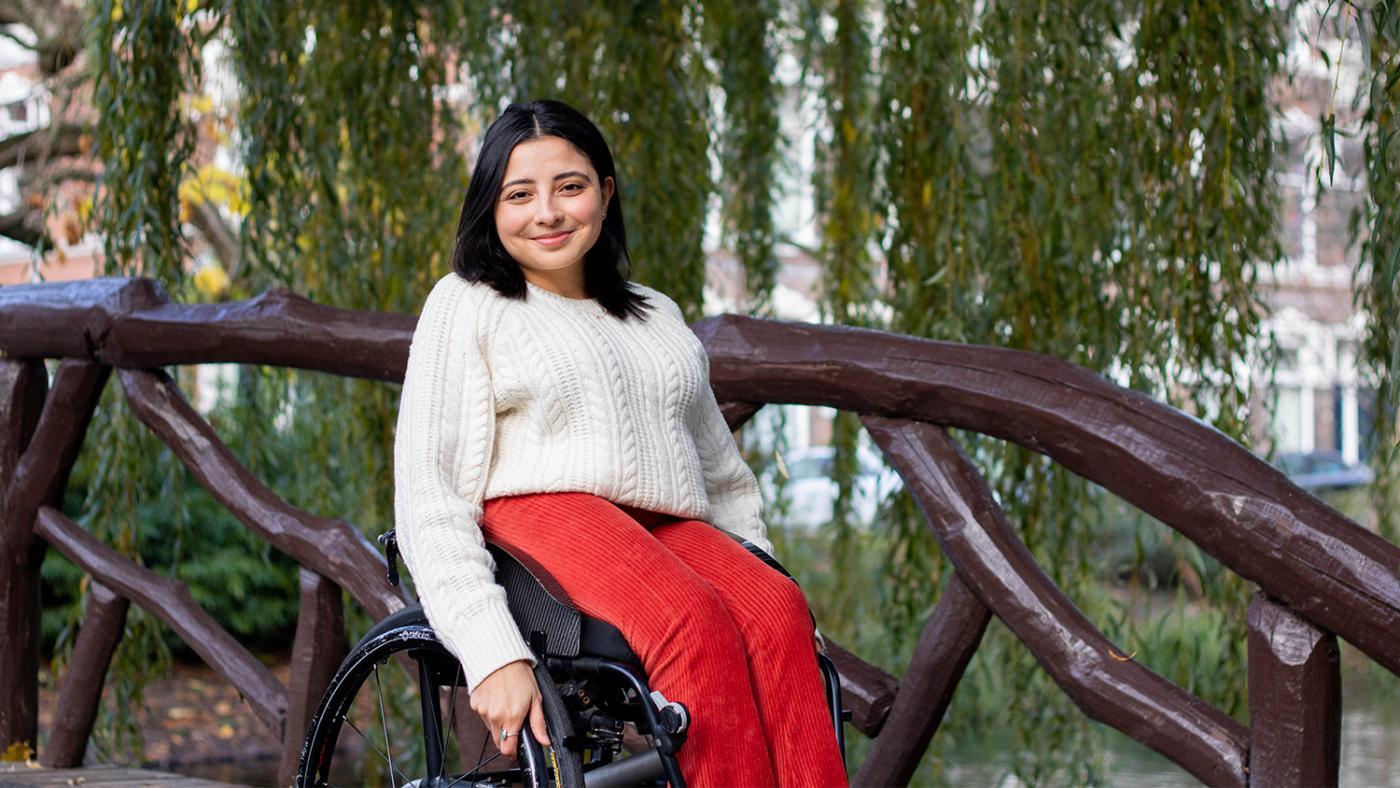
At the day that we speak to each other, Moska Hassanzai (30) was up at a quarter to six in the morning. She started her day in the swimming pool, where she regularly swims. Near the swimming pool lies the Rotterdam Erasmus MC. That's convenient, because that's where she is training to become a hospital pharmacist and is a PhD student.
In the meanwhile, Rotterdam has really become her city. At first, such a new place to live took some getting used to. She didn't know anyone there and had yet to find her feet. Her hand bike helped her a lot. She now cycles everywhere. It helps you to get to know a city a lot better, she says.
Let’s go back to 2017. At the time, Moska was about to complete her Pharmacy Bachelor’s degree at the UU. A few years prior that was by no means self-evident. Due to her caudal regression syndrome, her lower body functions poorly. She is therefore in a wheelchair and once started at a mytylschool, a school for people with disabilities. She was told that an MBO education – that is intermediate vocational education - would be the highest attainable for her.
That appeared to be untrue. Moska already indicated five years ago to be proud that she was getting everything out of life. That is still the case, she says. After finishing her education she worked in the hospital for a while to gain experience. Now she combines her studies with her PhD. “Those are two hefty balls to keep in the air," she admits. Nevertheless, it is working out well for now. She gets a lot of energy from the variety in her work. "But relaxation is also important."
She finds relaxation in, for example, binge watching series or listening to podcasts. She does the latter almost all day long, Moska says. When we spoke to her five years ago, she was also doing wheelchair hockey. One day she hopes to pick that up again, but for now a, team sport brings too many responsibilities.
The coming two years, she will still be finishing her education, afterwards she hopes to work in a nice hospital as a hospital apothecary. However, her ambitions are greater than that. She wants to be socially engaged, for example by positively changing the perception of people in wheelchairs.
With that in mind, she held a TED talk in 2021, titled ‘Standing up against society’s expectations’. “That was super scary. You don’t know how it will be perceived.” However, that is the very reason to do it. “You have to keep doing things that you find scary, things that are outside of your comfort zone.” For example, Moska went to work at Curaçao for five weeks last year. She knew that it wasn’t the most wheelchair accessible place on the world. In the end, thankfully, it wasn't that bad; it was all right. But she wouldn't have had any regrets otherwise either: "Even if things like that don't work out, it still feels better afterwards than if you hadn't done it at all."
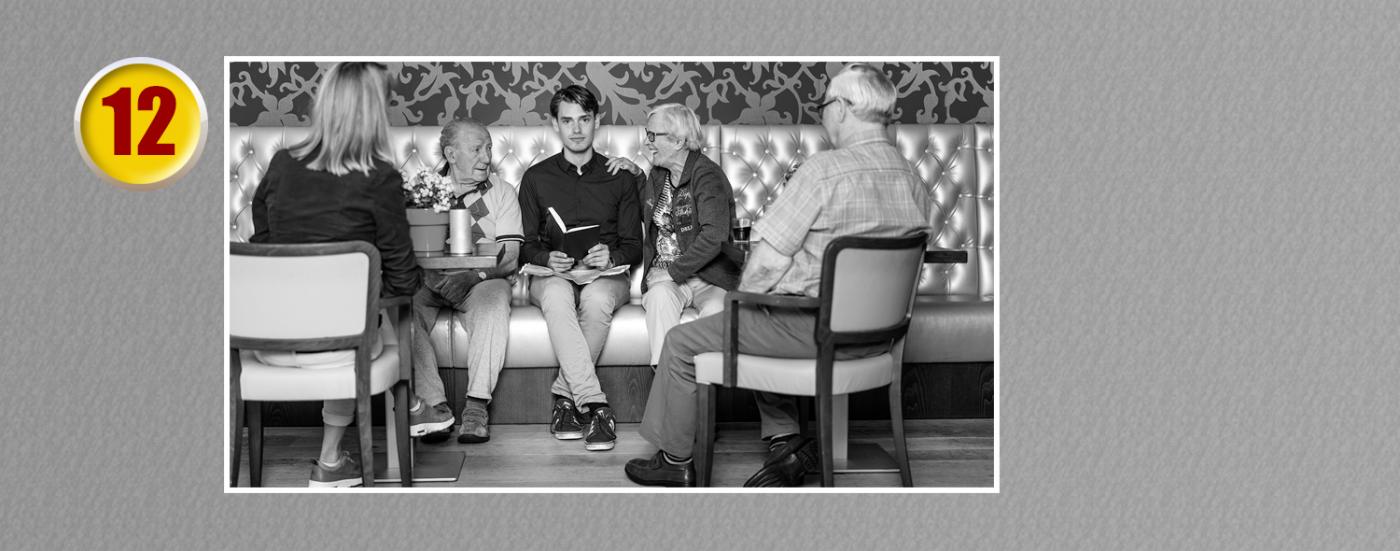
In 2016, Antoine Steenkamer received the UU-price for exceptional administrative and societal achievements for founding and developing foundation SpelenderGrijs. The foundation is committed to increasing contact between the elderly and young people through lectures by students in care homes.
These days, Antoine has very little to do with SpelenderGrijs. When he started working, he decided to pass on the concept to a new generation of students. After completing his master's degree in Business Law, he worked as a management consultant for a while, until he said he could no longer suppress his "entrepreneurial itch". That is why he founded ‘mijnverkoopmakelaar.nl’ three years ago. On it, home sellers can compare different estate agents, based on various data. Something like that was still missing according to Antoine.
Ultimately, he still has the same ambitions that motivated him to found SpelenderGrijs. "I still want to do good for others in a way that is economically sound," he says. "In fact, I still do."
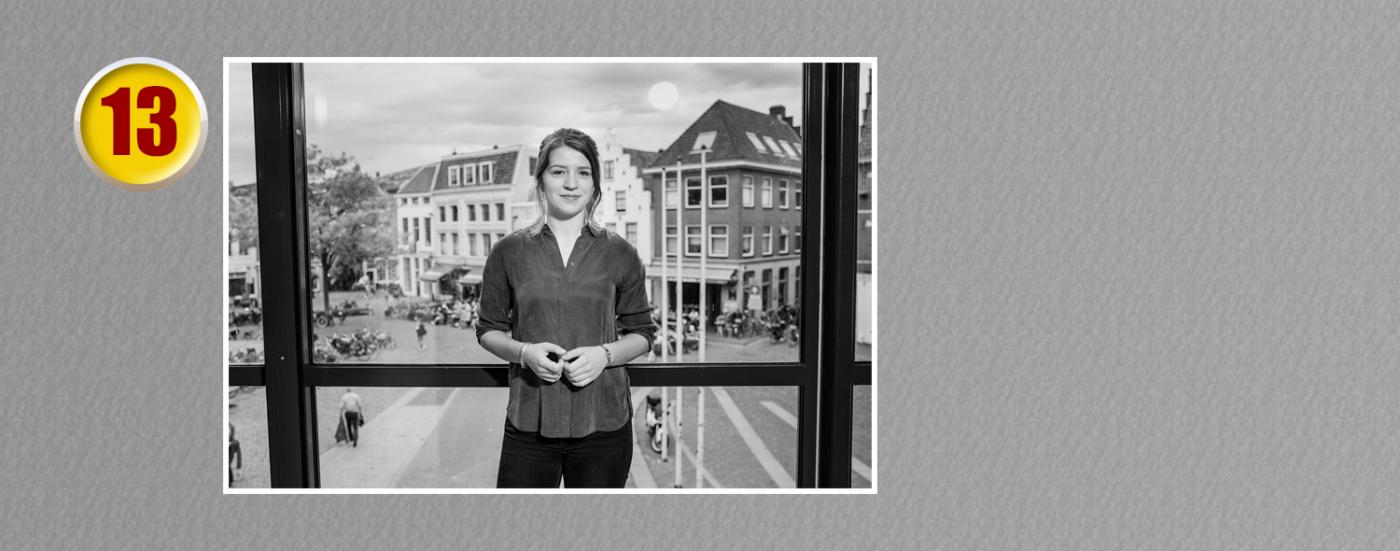
'Small steps should also be celebrated'
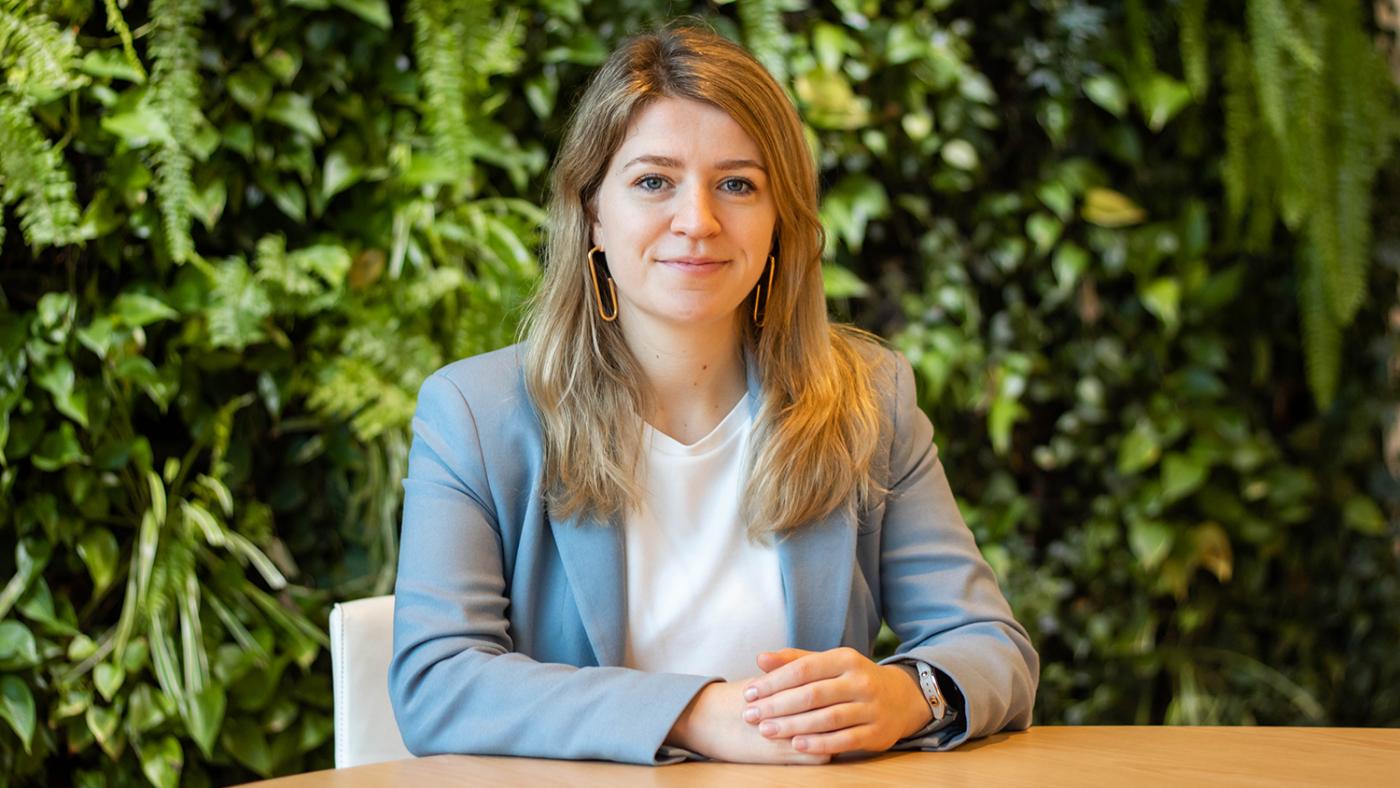
When she is asked whether the 24 year old Susanne would be happy with what she has achieved the past years, Susanne Schilderman (30) hesitates for a moment. “Oeh, that is a bit weird to say about yourself. I think so. It is amazing that I can now devote my entire workweek to improving my city. That is an enormous honour.” Five years ago she was the youngest Utrecht councilmember, nowadays she is the second youngest alderwoman in Utrecht.
There were, of course, a number of steps in between. In 2017, Susanne finished her master Economic Policy. During her master, she was also a council member. She actually liked that combination. As a student, she could easily arrange her hours herself, which helped. Moreover, the combination ensured that she was at the centre of society. She really represented the students of Utrecht, she says.
Susanne wrote her thesis on the tax policy of municipalities, but her jobs mainly concerned the housing market. First she worked at the Ministry of Home Affairs. She later joined Aedes, the association of housing associations. There, she championed the abolition of landlord levy, which became a reality in October this year. The investment space freed up as a result can be used by housing associations to build more houses and make existing ones more sustainable. At the same time, she also still remained a council member.
Five years ago, Susanne already indicated that in politics she hoped to ensure more affordable housing. So she did her bit for that, but she also ran into obstacles. After all, big changes often happen very slowly; the housing crisis has not yet been solved. Isn't that frustrating? "Not so much. Rather, I find it motivating. It's a reason to work even harder. And we have already achieved great things, if you look at the number of houses that have been added recently. But of course there must be even more."
As alderwoman she has a broad portfolio. She is responsible for Finance, Economic Affairs, Circular Economy, Public Space, Markets, Ports and the development of Utrecht Science Park. At the heart of all these is a transition, she says. Especially close to her heart is the transition to a circular economy. "The way we deal with raw materials now is really not sustainable. It is time to look at this in a different way, to talk about it more."
Susanne feels at home as alderwoman. She had to chuckle a little when she read that she had the ambition “to become prime minister of a unified Europe”. She still believes in the importance of a close European cooperation, but she is focussing herself primarily on the city. That’s what she wants to be doing the upcoming years. It is nice to be so close to the inhabitants of Utrecht as alderwoman, she says. “The municipality ensures that you can apply for a passport, that your waste is being collected and you have a bicycle rack in your street. That determines your daily life.”
She calls on students to speak out about what they think is important. Young people need to make themselves heard on issues such as climate change, in whatever way. Every contribution is a step in the right direction. Although it is extremely important to keep the scope of, for example, the climate problem in mind, small steps should also be celebrated, she thinks. Whether that's greening your garden, or taking out a sustainable energy contract. “Because with many small steps, you’re also moving towards your end goal.”
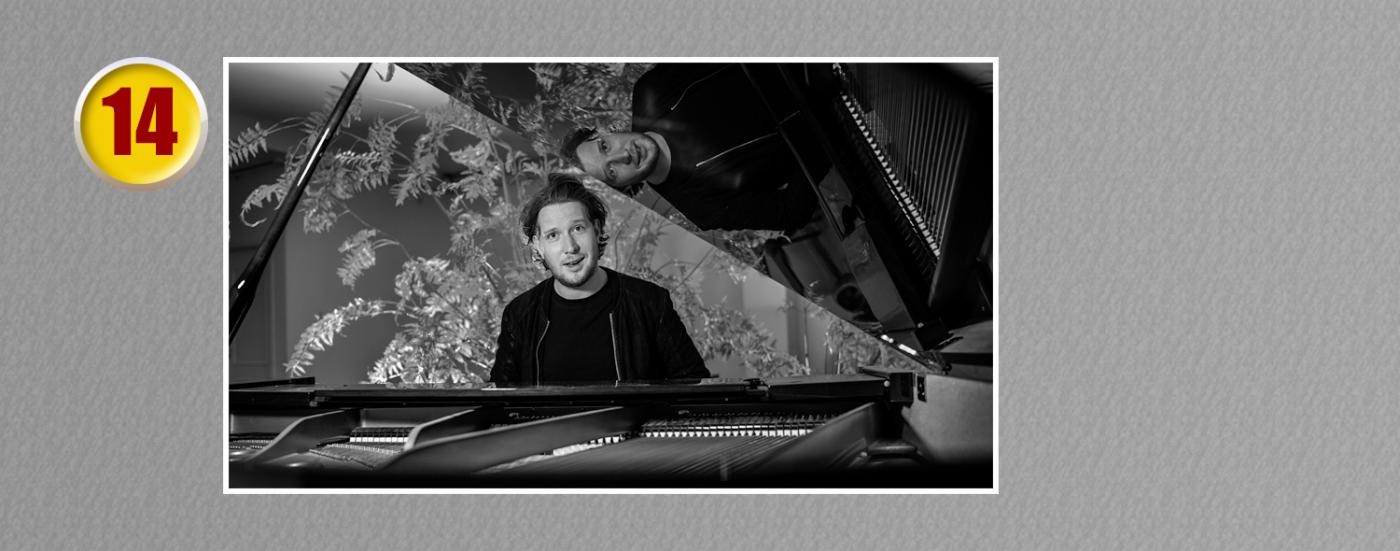
To many, Lodewijk Fluttert is better known as Bakermat. Under that name, he has been releasing a mix of deephouse and techno for years. His big break came in 2014, with One Day. He has since had another hit with Baianá, which was part of the soundtrack of football game Fifa 21.
So Lodewijk is still making music, but since we spoke to him in 2017, things have changed. He now owns his own music label. How different it was at the beginning of his career. Back then, he signed some "terrible contracts" that caused him a lot of headaches and money worries. He has since learned a lot from that and that is very important for Lodewijk, he reveals. His ambition "is really more in development than performance".
So the fact that he has not yet sold out Madison Square Garden, as he hoped in 2017, is not a big deal. If he learns something about music every year, he is satisfied. And he had already got to play in other beautiful New York venues anyway. "But who knows in the future!"
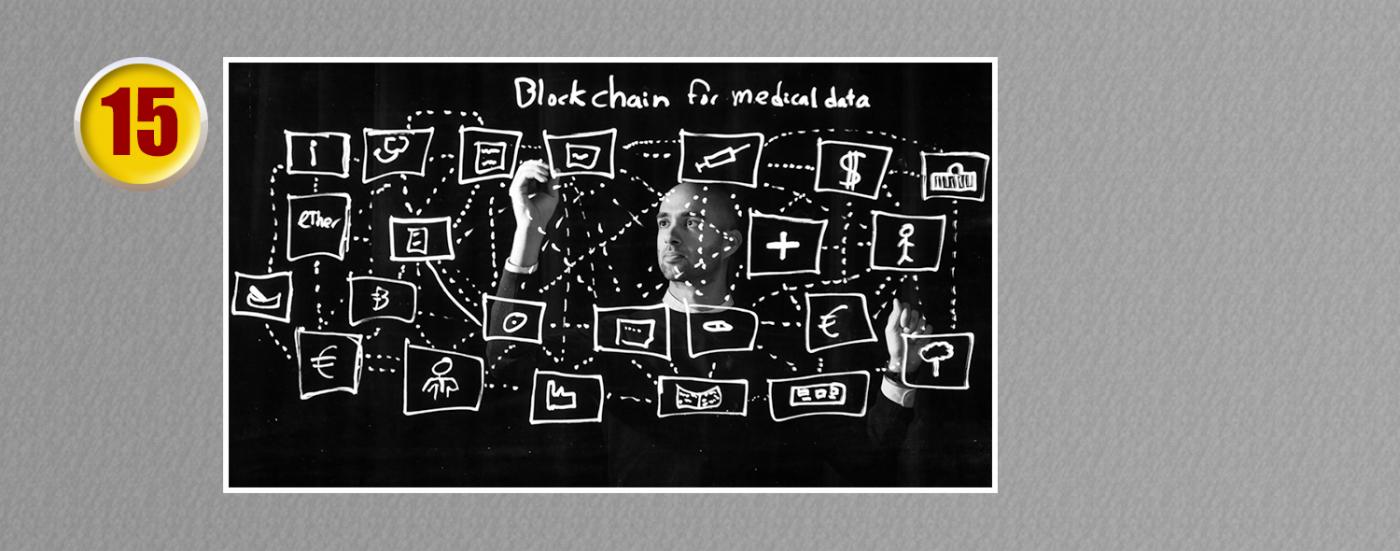
Unfortunately, we weren’t able to reach Milad Tannazi. In 2017, he was completing his master's degree in Pharmacy. At the same time, he was working on his research project on immunotherapy in lung cancer at the prestigious Karolinska Institutet in Sweden.
His LinkedIn page shows that he is now Venture Developer at NLC, where he contributes to the development of inventions within healthcare.